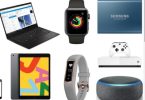Does it ever occur to you that the internet is a PUBLIC SPACE? That’s right. The more reason why you need to protect your online privacy in Nigeria, and absolutely anywhere you are operating from. Millions of users connect to cyberspace to provide and extract information every passing second. This means almost every piece of information about you and me is accessible on the internet, for those interested in getting them. That is unless you take deliberate steps to guard how much of your personal data is available online.
Also note that cybercriminals are on the loose, constantly inventing new ways to break into computers and networks to steal data. Hackers would try anything to get at your valuables, including your money and personal identity; or even to cause you trouble. So it is pertinent to remain alert. And move at least one step ahead of potential hacking threats to guard your personal data online.
Here in this article, we will prescribe strategies you can put to work in order to protect your online privacy in Nigeria. And remember that these online privacy control methods hold true anywhere you are located across the world, for that matter. Before hackers discover the weak points and loopholes in your computer, corporate network or online personal accounts, move fast to stop them. Check out the recommended tips below to protect your online privacy.
Strong Authentication Methods – Protect Everything Worth Protecting
At this point, we strongly advise our readers to use every available physical and online security method to their advantage. Protect all your internet-enabled devices and online accounts with strong authentication methods. Specifically:
Protect your digital devices (smartphones, tablets, computers, network infrastructure) with strong passwords or security codes. That would keep your device locked and inaccessible to any random person who tries to open it without your permission. This is even more important in cases of lost or stolen phones. Do the same to all your social media accounts, email box, and website accounts. Strong passwords can similarly guard your online accounts from being easily opened, or taken over by scammers. By doing so, your stored (or available) personal data would not be cheaply available to prying hands or thieves.
It is not enough to use a password – use a COMPLEX password. The type that will not be easy for hackers to crack or guess at. Long, complex passwords with a mix of numeric, alphabetic, and special characters are very useful. Nor should your password contain any phrase or syllable that can be easily guessed at – for instance, your birthday or name. A password such as op!Ar45xTY&BT gives you an idea of such complex passwords.
Also ensure you store the passwords in a safe place, both online and offline. You can write your passwords and the associated accounts in a diary or book, and keep it safe. You can also use the ‘Password Manager’ tool in Google Chrome browser’s Settings to automatically save and re-use your passwords. A similar tool should be found in practically every modern browser.
There are other very reliable authentication methods you can use. Biometric authentication (fingerprint scan, facial scan, retina scan) are very unique, powerful methods. You can use them to ensure your digital devices and online accounts can identify you as the owner of the account or device. Special websites with sensitive personal information, such as banks, crypto, and fintech apps, also provide this facility. There are also two-factor (or multi-factor) authentication; OTP (One-Time Password), security tokens, and authenticator apps (such as Google Authenticator).. It is very valuable to use more than one type of authentication method for more robust security. That way, hackers will not easily exploit, damage or harvest data from your devices and online accounts.
Social Media and Emails: Apply Extra Caution
Learn to reduce how much of your personal information you divulge on your social media pages, or in your email messages. There is a high level of public interaction that takes place on social media and through emails, so privacy is not guaranteed. Additionally, there are crooks who use social engineering to trick online account owners to give personal details. Some of them disguise themselves as offering help or assistance. While some play on one’s intelligence, pretending to be from authoritative sources. Some even pretend to be known people – appearing to be friends, loved ones, and acquaintances.
Whichever the case, it is well worth it to outrightly remove sensitive personal information from your social media profiles. Otherwise, restrict access to them – can do that by checking the settings of the app. That would include email address, date of birth, physical address, bank account information, ATM card details, or phone numbers.
Consider enforcing these additional measures as well:
Watch out for suspicious email messages. If for instance a known sender sends you an email message but it appears suspicious, do not rush to open it. Use other communication channels to confirm it – such as placing a phone call.
If an unknown person sends you an email with or without attachments in them, it is perhaps better not to open it.
A useful trick: you can hover your mouse over an email address or hyperlink to see its actual origin. You can quickly verify the email address, subject (or header), and organization in a search engine (e.g. Google search) as well. That way, you will detect and block possible hackers.
Another recommendation: If an email message, social media post, or advert looks too good to be true, trust your instincts not to believe it. So you should not bother to open it as well.
Learn to properly sign out of your social media, web, and email accounts before leaving the app or site. That would further safeguard you, by not leaving a link to your account wide open for hackers on your device (especially through cookies).
Software (and Hardware) Updates: Very Important
Both hardware manufacturers and software companies release product updates from time to time. Very likely the manufacturer or vendor had already identified a security loophole or weakness in its product. By releasing updates, such security weaknesses would have been patched up, along with product improvements. Rather than see it as a waste of precious data, regularly update your software (apps and operating system). It is a cheap way to safeguard your personal information and devices from cyber attacks.
Incognito (Private) Browsing
Every known modern browser (MS Edge, Safari, Google Chrome, and Mozilla Firefox) allows opening the browser in private (or incognito) mode. You can open it from the browser’s main menu. This method of safeguarding your privacy would work reasonably well if someone you know has physical access to your computer. That way, you will prevent him/her from investigating the sites you visit. Incognito mode will delete all cookies, temporary internet files, and browsing history, the moment you close the browser.
Instal and Run Antimalware and Antivirus software on a Regular Basis
We cannot overemphasize the importance of keeping your internet-enabled devices virus-free and malware-free. Malware is often a sure mechanism for hackers to take control of your device. Additionally, such hackers will have illegal access to your valuable personal data, files, and online identity. That is why you need to install reliable anti-malware, update it, and run it regularly.
Set Up Google Alerts
You can visit https://www.google.com/alerts to set up a Google Alert on any topic or even on your name. Anytime a new search on your name is being conducted by anyone in Google’s search engine, you are immediately alerted by email. Through this method, you will know if anyone is conducting an illegal search to get your details (so you can block them).








